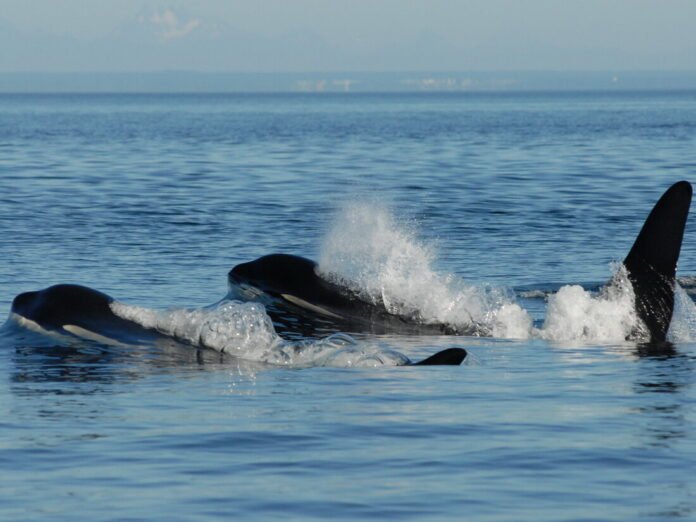Scientists have long studied menopause in animals to understand its evolutionary significance. While most species remain fertile until the end of their lives, a select few experience menopause, ceasing reproduction while continuing to live for many years. This phenomenon raises intriguing questions about its benefits and why it evolved in certain species.
Orcas, also known as killer whales, are among the most well-documented animals that go through menopause. Female orcas stop reproducing in their 30s or 40s but can live for decades after. Researchers believe this extended post-reproductive phase allows older females to take on leadership roles within their pods. Their accumulated knowledge, particularly about food sources and survival strategies, benefits younger generations, strengthening the social structure of their groups.
Short-finned pilot whales also exhibit menopause, mirroring orcas in their social organization. Older females lead their pods, guiding younger members toward feeding grounds and offering protection. These whales rely on deep social bonds, and post-reproductive females contribute to the well-being of their communities by supporting offspring and ensuring the success of their groups.
Beluga whales, another species known to experience menopause, show similar patterns. Researchers have observed older beluga females engaging in caretaking roles rather than focusing on reproduction. Their presence helps maintain stability in groups, reinforcing the idea that menopause evolved as an adaptation to enhance the survival of younger generations.
In the primate world, humans are not the only ones to experience menopause. Certain populations of short-tailed macaques exhibit reproductive aging, with older females ceasing reproduction while remaining socially active. These primates form tight-knit groups where knowledge transfer plays a crucial role in survival. Older females contribute to the upbringing of younger members, strengthening familial bonds and social stability.
Another fascinating example comes from Asian elephants, where females display signs of menopause despite their typically long reproductive lifespan. While not all elephant populations exhibit this trait, researchers have observed that older female elephants often take on leadership roles. Matriarchs, who are no longer reproducing, lead herds to water sources, offer guidance, and pass down survival knowledge to younger generations.
These animals demonstrate that menopause is not just a biological quirk but an adaptation that benefits social species. In groups where knowledge and experience are crucial to survival, post-reproductive females play a vital role in guiding younger members and ensuring the stability of their communities. The study of menopause in animals continues to provide valuable insights into its evolutionary purpose, shedding light on the deep connections between aging, survival, and social organization.
Scientists have also explored the genetic and hormonal mechanisms behind menopause in these species, hoping to uncover clues about human aging. Research suggests that the presence of post-reproductive females in these groups helps improve the survival rates of younger members. By ceasing reproduction, these animals redirect their energy toward supporting their communities, which may provide an evolutionary advantage.
Some researchers propose the “grandmother hypothesis” as an explanation for menopause. This theory suggests that older females contribute more to the survival of their genetic lineage by caring for their grandchildren rather than producing more offspring themselves. In species like orcas and elephants, where knowledge about migration routes, food sources, and social interactions is crucial, the wisdom of older females enhances the group’s chances of survival.
Menopause in animals also raises questions about the role of hormones in aging. In humans, declining estrogen levels trigger menopause, and scientists are studying whether similar hormonal changes occur in other species. Research on marine mammals, for example, has revealed shifts in reproductive hormone levels that mirror those seen in humans, suggesting common biological mechanisms.
Studying menopause in animals has implications beyond evolutionary biology. It may offer insights into human health, particularly in understanding age-related diseases. By examining how species that experience menopause adapt to aging, scientists hope to develop new strategies for addressing conditions like osteoporosis and cognitive decline in humans.
As research continues, menopause in animals remains a fascinating subject, challenging the idea that it is purely a human experience. These findings suggest that aging and reproduction are deeply connected to social dynamics and survival strategies. The presence of menopause in multiple species indicates that it has persisted through evolution for a reason, shaping the way certain animals live and interact within their communities.



